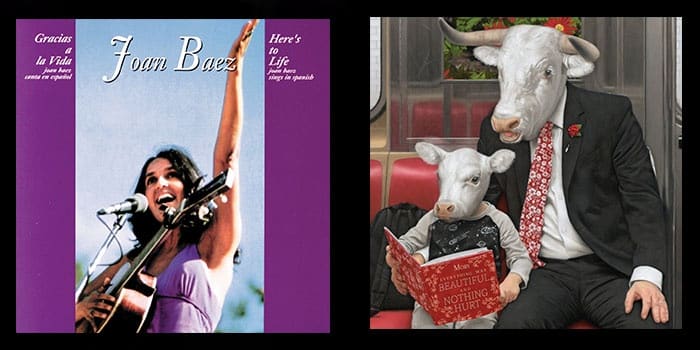Editor’s Pick
MOBY | Everything Was Beautiful, and Nothing Hurt
One of the many great things about music is how it engages the whole range of human emotion, allowing the listener to feel what the artist is feeling—whether it be a time of celebration or a time of trial and tribulation. In a sense, music can be like a prayer of solidarity. In Moby’s latest album, Everything Was Beautiful, and Nothing Hurt, the artist lets us in on his innermost struggles in a way that’s both relatable and rewarding.
Moby revisits the downtempo style of some of his prior releases, and present are his signature synthesizer strings, haunting female guest vocalists, and his own pensive, whispered vocal delivery. Within seconds of the opening track, “Mere Anarchy,” the sound is immediately recognizable as a Moby record. Yet much has changed in his life and in the world, and it’s this shift in perspective and feeling that drives the album.
Now 10 years sober, Moby (whose real name is Richard Hall) battled addiction during his years on the rise to becoming one of the world’s most revered electronic musicians. The music here shows that he is still grappling with feelings of brokenness. In a way, Everything Was Beautiful is a lamentation, but, like a “good cry,” there is something rejuvenating and restorative in listening to this album. In “This Wild Darkness,” Moby sings, “I can’t stand on my own anymore/I can’t stand in the stain of the broken and poor/I can’t break what I held and it never was true/In the mirror what I said was a lie to you.” In his vulnerable state, he realizes that he can’t make it through life by himself: We need God and each other to carry on. The chorus, backed by a trio of soaring female vocals, is a simple but profound prayer: “In this darkness/Please light my way/Light my way.”
Other song highlights include “Welcome to Hard Times” and “A Dark Cloud Is Coming.” Despite the darkness suggested by many of the song titles, this is an album of achingly beautiful melodies, introspection, and, ultimately, an affirmation of God’s healing grace.
Retro-spective
JOAN BAEZ | Gracias a la Vida
Born in 1941, folk singer-songwriter Joan Baez has spent her life promoting nonviolence and justice for the poor and oppressed, themes that resonate with the Catholic conscience. By the time Baez released Gracias a la Vida in 1974, she already had 16 albums under her belt. It was time to try something different.>
Most of the song selections are covers and traditional tunes from across Latin America. The title track, “Gracias a la Vida” (“Thanks to Life”), was written by Chilean folk singer Violeta Parra. A bittersweet ballad about the joys and sorrows of life, the song gets right to the epicenter of the soul of Latin America. “Te Recuerdo Amanda” (“I Remember You, Amanda”) is a song composed by Victor Jara, who was tortured and killed during the 1973 Chilean coup.
An interesting side note is that Baez received the Thomas Merton Award—given annually to “national and international individuals struggling for justice”—one year after the release of Gracias a la Vida.








